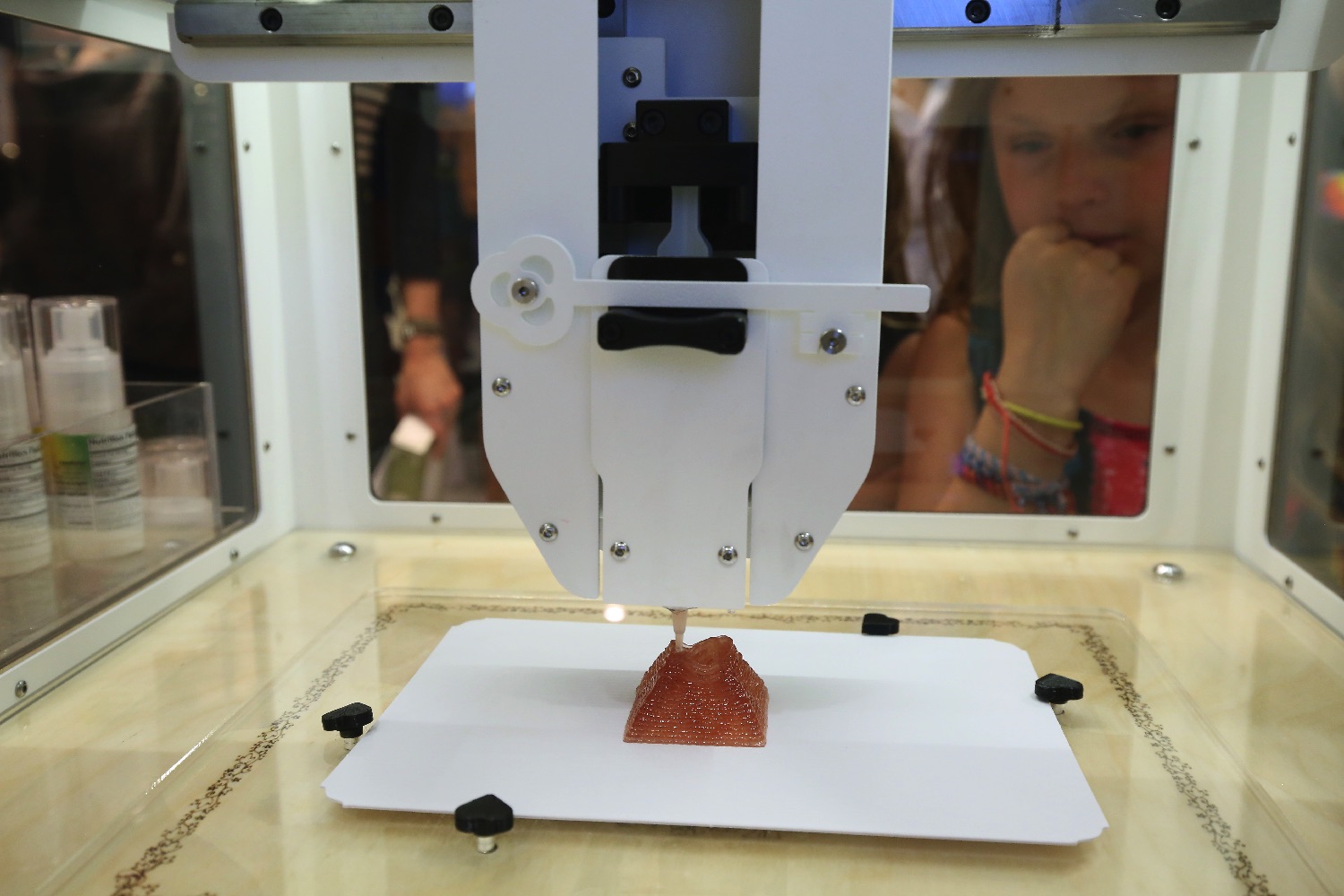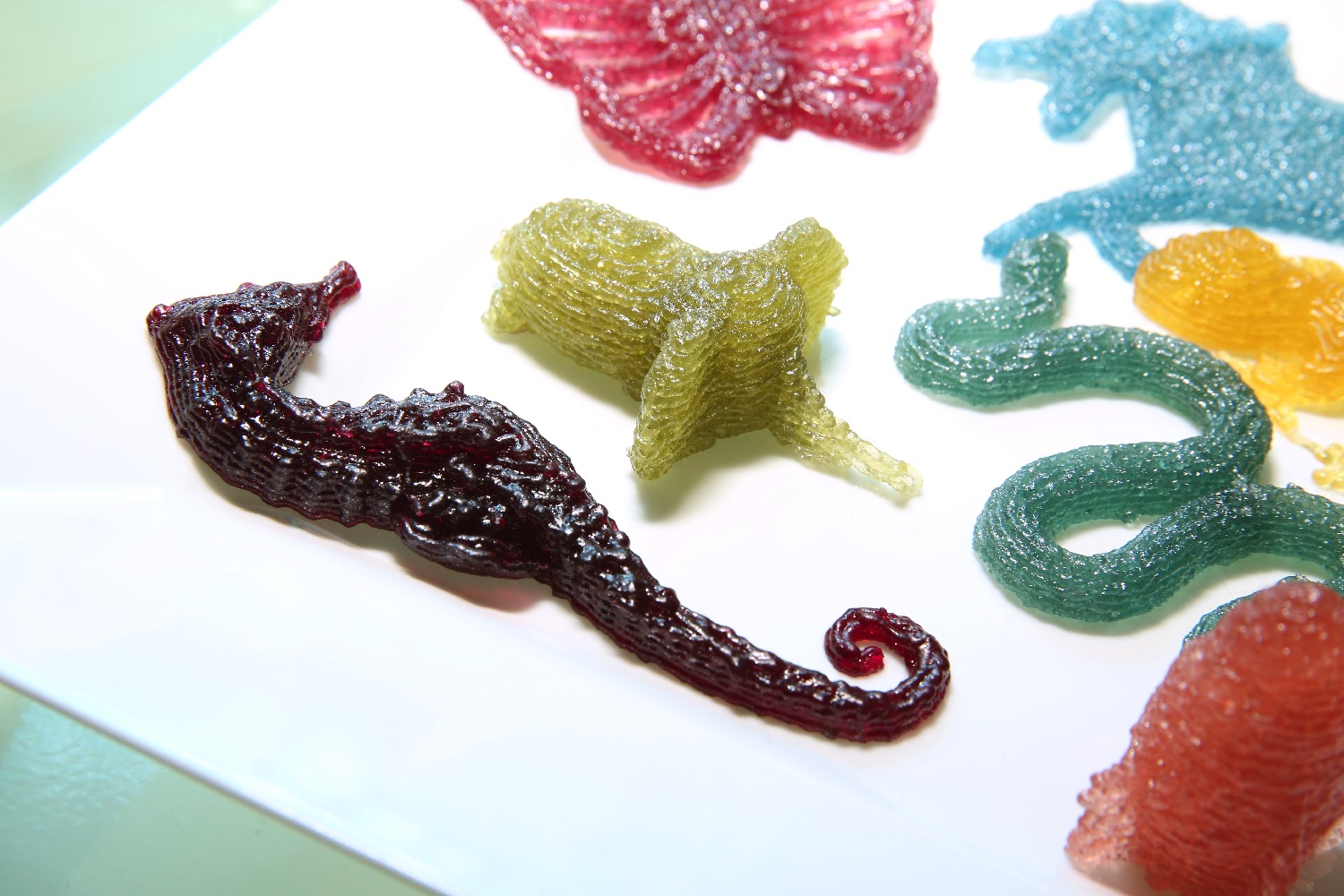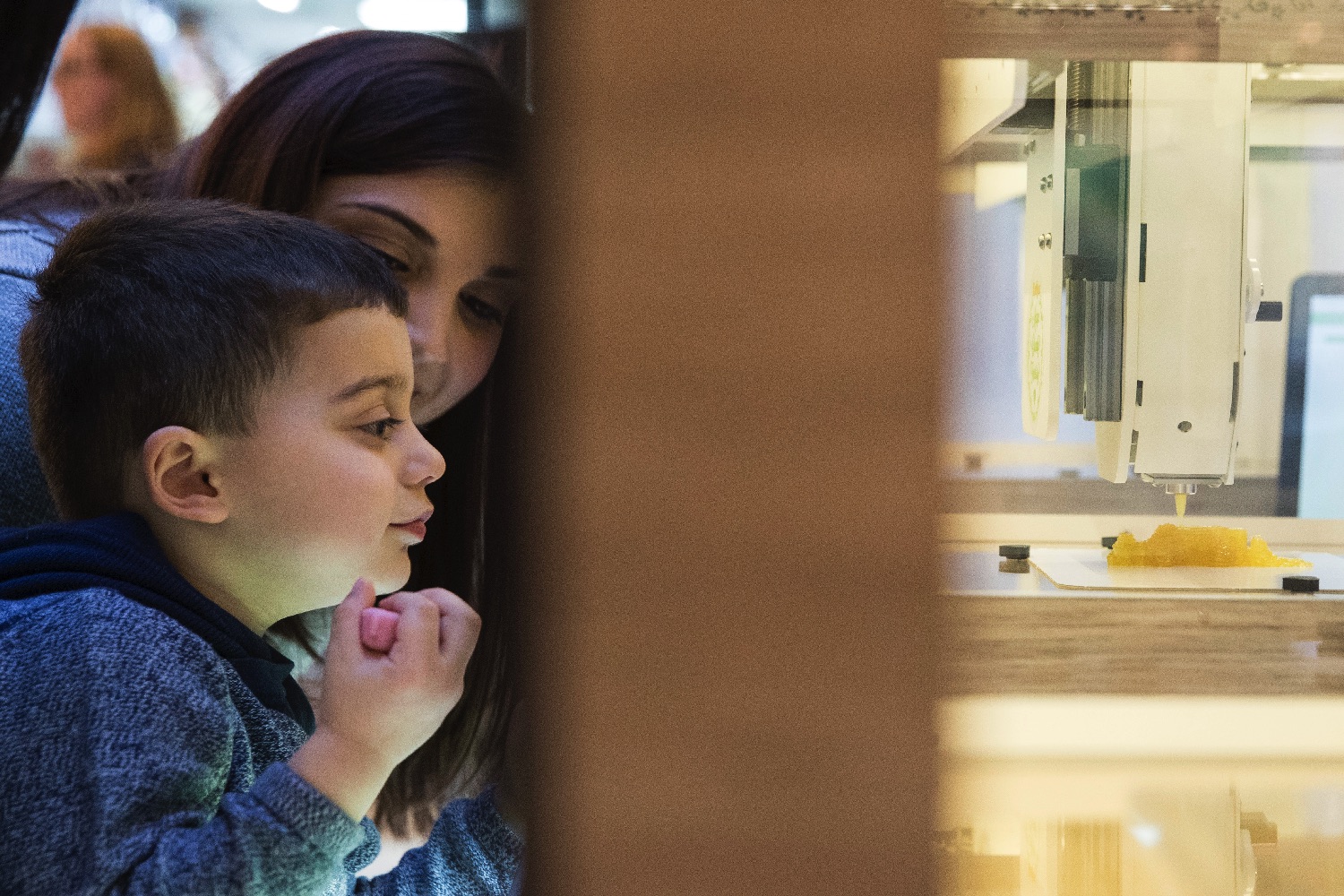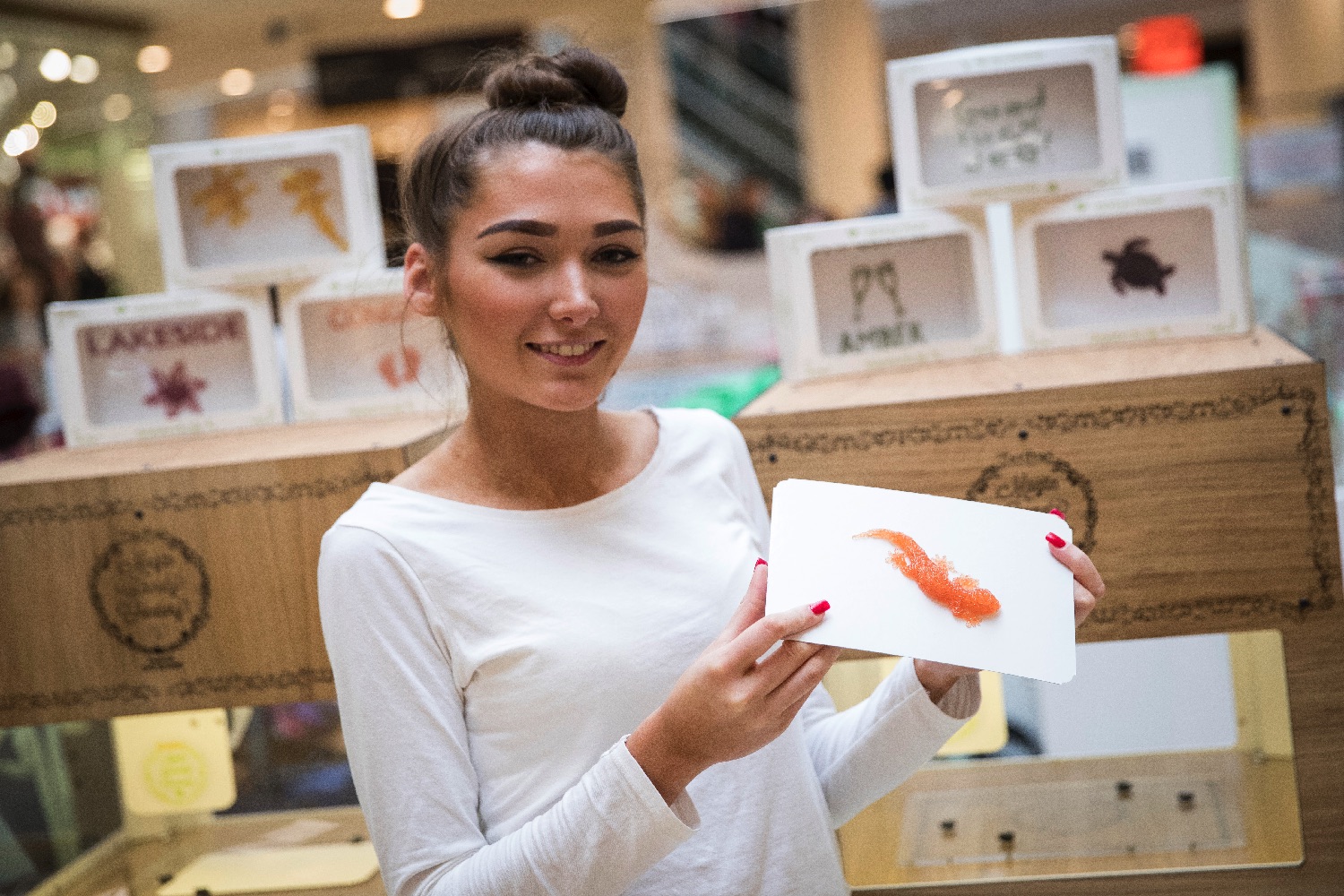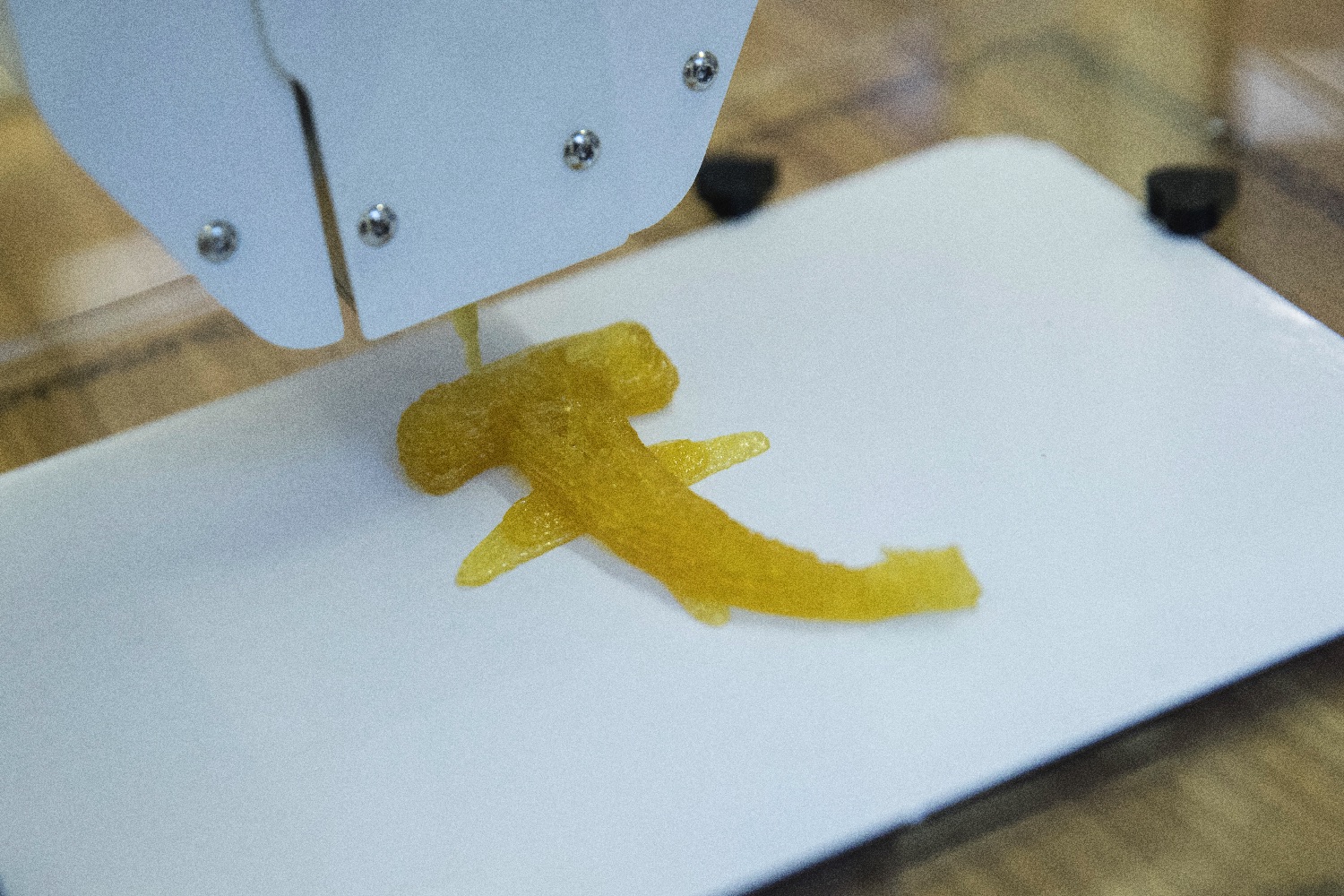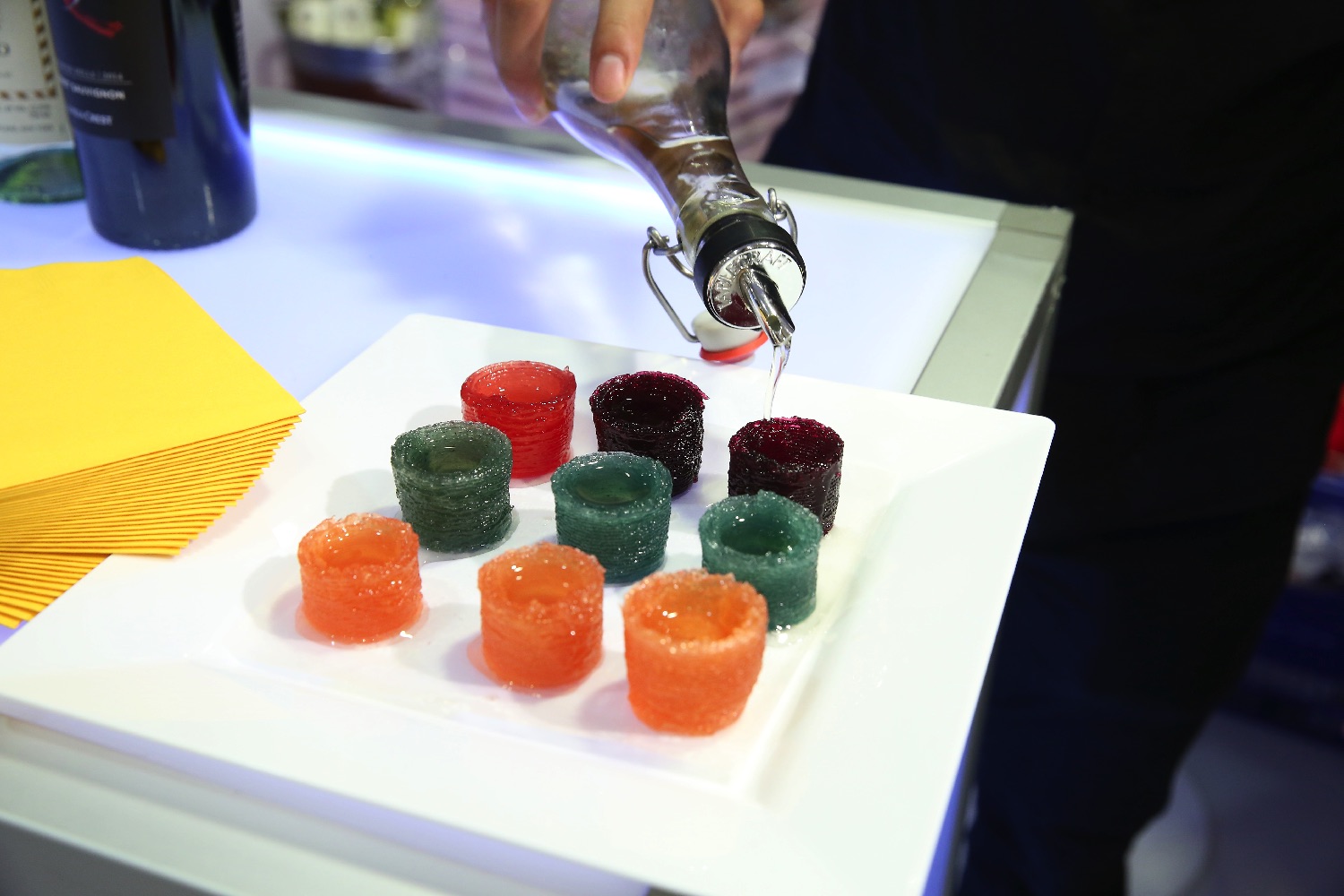Try telling that to Melissa Snover, the creator and managing director of the Katjes Magic Candy Factory, a chain of stores offering customers the chance to design and print their own custom gummy candy.
“Our 3D printer lets anyone from a three-year-old child to a 79-year-old interact with a tablet computer and use that to 3D print their own candy,” Snover told Digital Trends. “They can write words, draw their own shape, or even upload photographs and logos — and then have the system turn it into candy. The customer can then choose from eight different vegan all-natural colors and flavors and even opt to make their candy sour, fizzy or bitter at the end of the process. The machine then creates the candy before their eyes in less than five minutes.”
The Katjes Magic Candy Factory brand is growing astonishingly quickly. Stores can already be found in Seattle, Denver, Salt Lake City, Los Angeles, Miami, New York, Chicago, Boston, Kansas City, Missouri, and Austin, Texas — along with further afield locations in Berlin, Dubai, and Dublin. On Thursday, it officially launched in eight shopping centers across England, Wales, and Scotland.
Before moving into 3D-printed confectionary, Snover founded the world’s first vegan gummy candy brand, which she eventually sold to start her current business.
“I loved what I was doing, but I felt very frustrated by traditional manufacturing constraints,” she explained. “If you make something in a factory, you’ve got to make hundreds of thousands of the same item in order to make it at a reasonable price for the consumer market. That means you can’t easily make limited editions, and you certainly can’t make customized products. As an entrepreneur, I want to create things that make people happy and are exactly what they’re looking for. 3D printing seemed like the perfect solution.”
The ‘magic’ part of the Katjes Magic Candy Factory store name comes from the third of futurist and writer Arthur C. Clarke’s three laws, stating that any sufficiently advanced technology is indistinguishable from magic. “We want our machines to work so well and so easily that it feels like it’s magic rather than science — even though there is actually a ton of technology working behind the scenes,” Snover said.
Along with further developing the Katjes brand, Snover hopes that the Magic Candy Factory will help open people’s eyes to the culinary possibilities of additive manufacturing.
“3D printing of food is still very futuristic in a lot of ways,” she concluded. “That’s why I believe that candy is the perfect medium to start consumers on the journey of understanding, accepting and enjoying 3D-printed food. If I tried to 3D print Sunday dinner or a chicken roast, it would still seem like you’ve taken people too many steps into the future. But candy has always been about fun shapes and colors, which makes it the perfect vehicle for this magical process of creation.”
